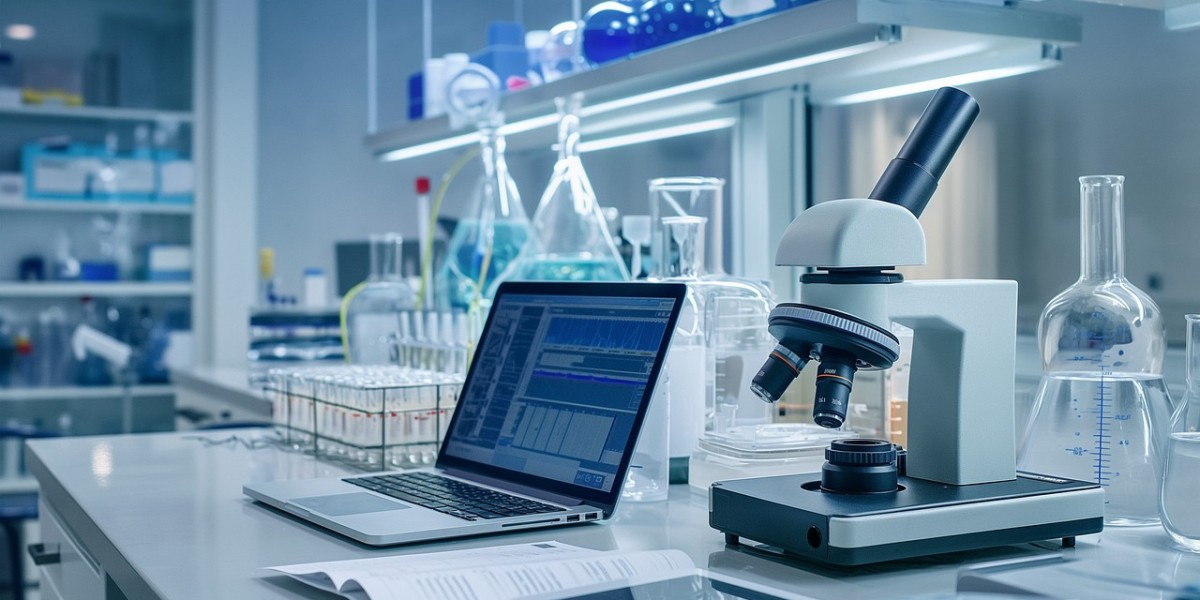Biotechnology is a rapidly growing field that merges biology with technology to solve complex problems in healthcare, agriculture, environmental sustainability, and more. But what does a biotechnologist do on a daily basis? This diverse career offers a wide range of responsibilities, from researching DNA sequences to developing new drugs, improving crop yields, or creating environmentally friendly products. In this post, we'll explore the key roles and responsibilities of a biotechnologist and the various career opportunities available in this exciting and impactful field.
Key Responsibilities of a Biotechnologist
Biotechnologists work across various industries, including pharmaceuticals, agriculture, healthcare, and environmental science. Their primary role is to use biological processes and organisms to develop or improve products, technologies, and processes that benefit society. Here are some of the main responsibilities biotechnologists handle:
- Research and Development (R&D)
One of the core tasks of a biotechnologist is conducting research and development. This involves studying living organisms such as bacteria, viruses, and human cells to better understand how biological systems function. Biotechnologists may experiment with genetic material to modify organisms for specific purposes, such as creating crops resistant to pests or developing treatments for diseases.
- Genetic Engineering
Many biotechnologists focus on genetic engineering, where they manipulate the DNA of organisms to achieve desired traits. In agriculture, for example, genetic modification can create crops that are more nutritious or resistant to drought. In healthcare, genetic engineering helps develop treatments for genetic disorders and cancer by altering DNA sequences. This field is pivotal to advancements in personalized medicine.
- Production of Biopharmaceuticals
In the pharmaceutical industry, biotechnologists play a critical role in the creation of biopharmaceuticals—medications produced using living organisms. They work on developing new drugs and therapies using biological materials, such as monoclonal antibodies, vaccines, and gene therapies. Their work is crucial in addressing diseases that traditional medications may not effectively treat.
- Quality Control and Assurance
Biotechnologists also ensure that products, such as pharmaceuticals, foods, or biofuels, meet quality and safety standards. They perform tests to validate the effectiveness and safety of products before they reach the market. This step is critical for both consumer safety and regulatory approval.
- Environmental Biotechnology
Another area of responsibility is environmental biotechnology, where biotechnologists apply biological techniques to solve environmental challenges. They may work on developing biofuels, managing waste through microbial processes, or creating technologies to clean up contaminated environments. This is particularly important as industries look for sustainable ways to reduce their environmental impact.
Career Opportunities for Biotechnologists
The biotechnology field is vast, offering numerous career opportunities in a wide range of sectors. Whether you’re interested in healthcare, agriculture, or environmental sustainability, there are various paths you can pursue. Here are some of the top career options:
- Pharmaceutical Biotechnologist
A popular career choice, pharmaceutical biotechnologists work on developing new drugs and vaccines. Their research focuses on using biological materials to create effective treatments for diseases, including cancer, diabetes, and autoimmune disorders. The demand for professionals in this field is increasing as the global healthcare industry continues to grow.
- Agricultural Biotechnologist
Agricultural biotechnologists focus on improving crop yields and developing more sustainable farming methods. By manipulating the genetic makeup of plants, they can create crops that are more resistant to pests, diseases, and environmental conditions. This helps address global food security challenges and reduces the need for harmful pesticides.
- Environmental Biotechnologist
Environmental biotechnologists work to address environmental issues such as pollution, waste management, and climate change. Their efforts may involve developing biofuels, creating microorganisms that can degrade pollutants, or engineering plants to absorb harmful substances from the soil. This field is essential for companies and governments aiming to adopt more sustainable practices.
- Clinical Research Associate
If you're interested in clinical trials and medical research, becoming a clinical research associate (CRA) could be a rewarding career. CRAs oversee the clinical trials of new drugs or medical devices, ensuring that they are safe and effective. They also work with doctors and patients to collect data and monitor the progress of trials.
- Biomanufacturing Specialist
In the biomanufacturing sector, biotechnologists are involved in scaling up the production of biological products such as vaccines, enzymes, and biofuels. This role requires a strong understanding of both biology and engineering to ensure efficient and safe manufacturing processes. Biomanufacturing specialists are crucial to getting new biotechnology products from the lab to the market.
- Regulatory Affairs Specialist
For those who enjoy working with policies and regulations, a career in regulatory affairs is an excellent option. Regulatory affairs specialists ensure that biotechnology products comply with local and international regulations before they can be sold. They work closely with companies to submit documentation to regulatory bodies like the FDA (Food and Drug Administration) or EMA (European Medicines Agency) for product approval.
Skills Required for a Career in Biotechnology
To succeed as a biotechnologist, you’ll need a combination of technical skills and soft skills. Some of the key skills include:
- Laboratory Skills: Expertise in laboratory techniques, such as PCR (Polymerase Chain Reaction), gene editing tools like CRISPR, and cell culture methods, is essential.
- Analytical Thinking: Biotechnologists must be able to analyze data and experiment results critically to develop innovative solutions.
- Communication Skills: Whether presenting research findings or collaborating with colleagues, effective communication is key in biotechnology.
- Attention to Detail: Precision is vital when working with genetic material or developing new products to ensure accuracy and safety.
Conclusion
The role of a biotechnologist is varied and essential to many industries, from healthcare and agriculture to environmental sustainability. So, what does a biotechnologist do? They are innovators who apply biological science to solve global challenges, improve quality of life, and advance technology. As the demand for biotechnology solutions grows, so do the career opportunities in this field. Whether you're passionate about research, product development, or environmental conservation, a career in biotechnology offers a fulfilling and impactful path.



